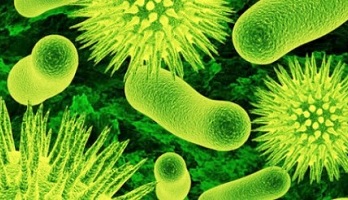Scientists at the Council of Scientific and Industrial Research’s Centre for Cellular and Molecular Biology at Hyderabad have come out with a finding that the entry of disease-causing microbes into human cells can be cut down significantly by reducing the level of cholesterol that is available on cell membranes.
Hyderabad (India Science Wire) – Despite advancement in healthcare developing newer services and products, it is facing a major problem in the form of growing drug resistance.
New resistance mechanisms, also known as superbugs, are emerging and spreading globally, threatening the ability to treat common infectious diseases, resulting in prolonged illness, disability and death. Unless controlled early, 10 million people are estimated to die each year from antibiotic resistance infections by 2050.
Indian institutions and scientists are also in the forefront of research to find effective medicines to treat drug resistant diseases.
Scientists at the Council of Scientific and Industrial Research (CSIR’s) Centre for Cellular and Molecular Biology (CCMB) at Hyderabad have come out with a finding that promises to offer a lasting solution.
A team of CCMB researchers led by Prof. Amitabha Chattopadhyay have recently found that the entry of disease-causing microbes into human cells can be cut down significantly by reducing the level of cholesterol that is available on cell membranes.
In other words, one can reduce the burden of diseases, which depend on the entry of the microbe into blood cells to establish infection and at the same time combat drug resistance, by merely reducing the cholesterol content on the cell membrane.
“Microbes become drug resistant through the process of mutation, mainly because the drugs that are presently used to kill them attack their DNA. If, instead, the focus was on stopping the microbes from entering the cells by reducing the cholesterol level on the cell membrane, there will be less possibility for the microbes to mutate and thus develop drug resistance,” said Prof. Chattopadhyay. He said more studies are required before a drug or a treatment process based on the new finding could be developed.
Prof. Chattopadhyay’s team was the first in the world to show how Cholesterol molecules on cell membrane interacted with a special class of cell membrane proteins called G-Protein coupled receptors or GPCRs, which control the body’s response to a wide variety of signals including drugs, toxins, and microbes. These proteins sit on the cell membrane, which separates the cell from the outer environment and at the same time helps them communicate. They showed that Cholesterol binds to GPCRs at specific sites, alters their conformation, and affects their function. This could be exploited to develop a new class of drugs to combat infectious diseases.


